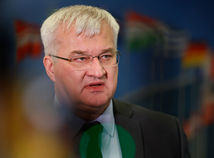Often, when we contemplate or discuss death, we are not addressing the concept of death itself but rather the fears and concerns it evokes. These include the loss of a loved one, the psychological suffering, physical pain, and for the religious, the question of whether they will attain heaven. These fears and concerns, however, are not inherently about death itself.
To understand this, we must first recognise why we often equate death with these existential hurdles. The issue lies in our identification with our thoughts and ego. In Sanskrit, the ego is termed Ahankara, and the emotional mind is known as Citta. We mistakenly believe that our thoughts and bodies constitute our true selves and that ‚we‘ are going to die.
However, our true self is not our thoughts or our body. In Sanskrit, this true self is referred to as Ātman, the essence of our Higher Eternal Self, representing pure, impersonal consciousness or witness-consciousness within each individual, transcending identification with phenomena.
The first step towards understanding death is gaining self-knowledge (Atma Gyaan or Brahmajnana). This self-knowledge allows us to better cope with the physical and psychological losses that death brings. By training our minds to recognise that our thoughts and bodies are not who we truly are, we can begin to understand what death actually is.
Many people believe in an afterlife, be it heaven or hell, and that’s their personal belief. However, to truly comprehend the process of death, one must do inner work.
First of all, everything is subject to change and impermanence (Anicca in Sanskrit). Life must change, and death is an integral part of this process. Within this framework, death is not an end but a transition. This perspective is echoed even in religious texts, including the Bible. For example, the concept of reincarnation is reiterated in several books of the Old Testament, such as the Book of Job (33:29-30), the Book of Ecclesiastes (Apocrypha 41:8-9), and the Book of Amos (9:2):
“Behold, God does all these things, twice, three times, with a man, to bring back his soul from the Pit, That he may be enlightened with the light of life.”
“Woe to you, ungodly men, who have forsaken the law of God! And if you be born, you shall be born to a curse…”
“Though they dig down to the place of the dead, from there my hand shall take them, And if they climb to heaven, From there I will bring them down.”
The omission of reincarnation from the New Testament Gospels was likely deliberate by those seeking to establish a new religion based on Jesus’s teachings (this was done in the Councils of Carthage during the 3rd, 4th, and 5th centuries in the city of Carthage), because they needed to ensure that the concept of reincarnation was removed from public consciousness to maintain ecclesiastical authority, for reincarnation implies that each person is responsible for their ethical actions without needing to adhere to religious dictates.
But in the first three centuries of Christianity, beliefs were different. For example, the early Church Father Origen (185-254) wrote,
„The soul has neither beginning nor end. It comes into this world strengthened by the victories or weakened by the defeats of their previous lives“ (De Principiis, Book I, Ch. 7, No. 4).
Similarly, St. Irenaeus (c.130-200) stated in his treatise Against Heresies (Book II, Ch.33), „They (the souls) must of necessity retain a remembrance of those things which have been previously accomplished.“
Despite these early beliefs, the Second Council of Constantinople (AD 553) decided to exclude these ideas from official doctrine.
In summary, understanding death requires us to go beyond our immediate fears and concerns, which are rooted in our attachment to the physical and emotional aspects of our being.
By recognising and connecting with our true self, or Ātman, we can see death not as an end but as a transition, a part of the natural cycle of change and impermanence.
This deeper understanding can alleviate the fear of death and help us live more meaningful lives, aware of our eternal essence, which transcends our physical and terrestrial lives.




Celá debata | RSS tejto debaty